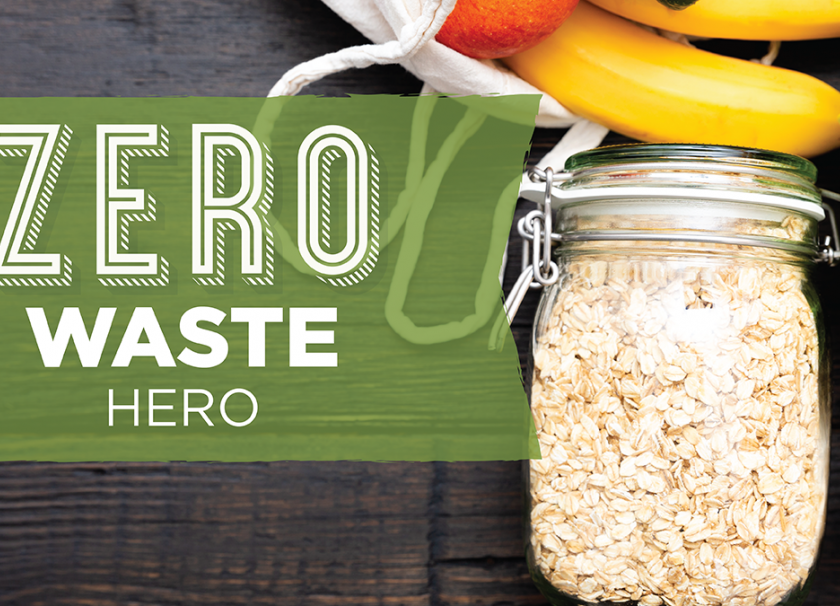
Tips for a Sustainable Kitchen
By Mahlea Rasmussen, Education Coordinator
Outside of work I spend a lot of time in the kitchen. I find it a soothing space to create nourishing meals and lasting memories. I find it essential to be as eco-friendly as possible and a few changes can transform your kitchen into a sustainable center of your home.
The choices begin with shopping for your food. It is important to stay organized so you don’t end up over-shopping or purchasing items you already have. This can lead to food waste - the USDA found that Americans on average each waste a pound of food per day. To avoid this, create a list on a chalkboard or white board and take a photo, so you know just what to purchase.
Don’t shop when your hungry. Although all of us have been there and heard this before, we are much more likely to purchase unnecessary items when our tummies are doing the talking.
Leave your reusable tote bags in the car, so you don’t leave them at home. After unloading your goods, run out to the car one more time and throw your bags in the back seat. That way you won't be caught without them next time you hit the market. Some estimates put the average 'lifespan' of a plastic bag at just 12 minutes.
Shop in the bulk and produce departments to avoid packaging and bring your own containers. The beautiful thing about bulk is that it goes far beyond food items: shampoo, dishwashing detergent, pet food and more are available. Because you can bring your own containers to fill, you're skipping the single-use packaging that many products on the shelf come in.
When shopping for produce, I choose a bag made from recycled plastic bottles available for $0.50 in our produce department. For dry goods, a muslin cloth bag is also available for the same price. For flours and liquids, I bring my own glass jars and bottles.
Shopping for herbs and spices with your own containers is especially advantages as you can save as much as 95% on the goods you buy. Remember: every time you purchase an item in a container, part of the cost is paying for the container itself.
At home some other ways to make your kitchen more sustainable is by growing your own herbs and making your own products. This doesn’t have to be overly time consuming. Herbs, rosemary, oregano and thyme are easy to grow and require minimal time.
Having a stock container in your freezer can significantly reduce your waste and save you money. Most vegetable scraps can be used such as carrot ends, celery and onion. After boiling the stock vegetables you can compost them as long as there is no meat product or oil used.
Replace soft drinks with infused water you make at home. Fill a pitcher with refreshing citrus, mint or cucumber. Not only is this good for your budget, but it's good for your waistline by reducing unnecessary sugar intake.
Another item found commonly in kitchens and easily eliminated is paper towels: it’s easy to sub in some worn out, clean t-shirts and cloth napkins.
And finally, when you're serving dinner, create smaller plates. Those who are hungry can always go back for more, but you will end up throwing out less uneaten food.
The benefits of a zero waste kitchen go beyond the trash compactor. You will find yourself saving money and eating clean. “The zero waste lifestyle is not about complicating your life; it’s about simplifying.” - Bea Johnson.
More Co-op News

November Change for Good Partner: Southern Oregon Climate Action Now
November Change for Good Partner: Southern Oregon Climate Action Now
November's Change for Good Partner is

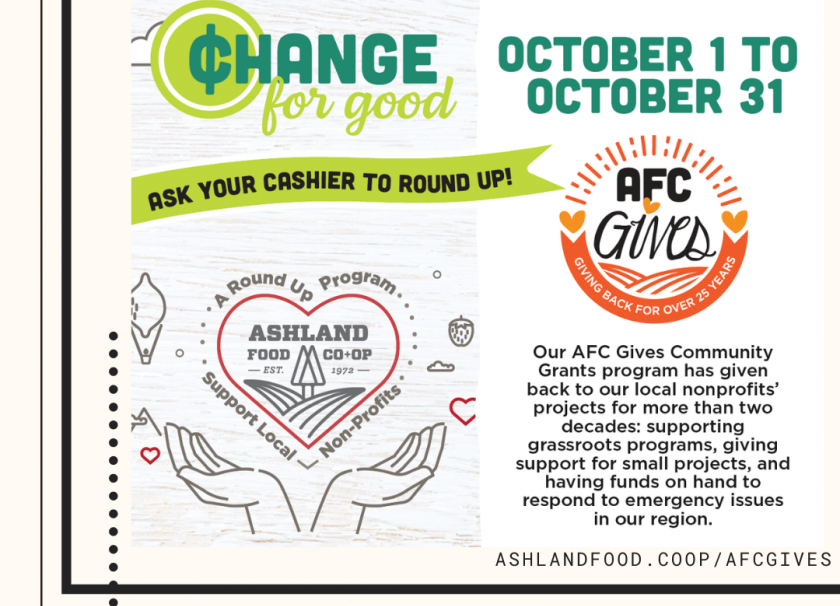
October Change for Good Partner: AFC Gives Community Fund
October's Change for Good Partner is
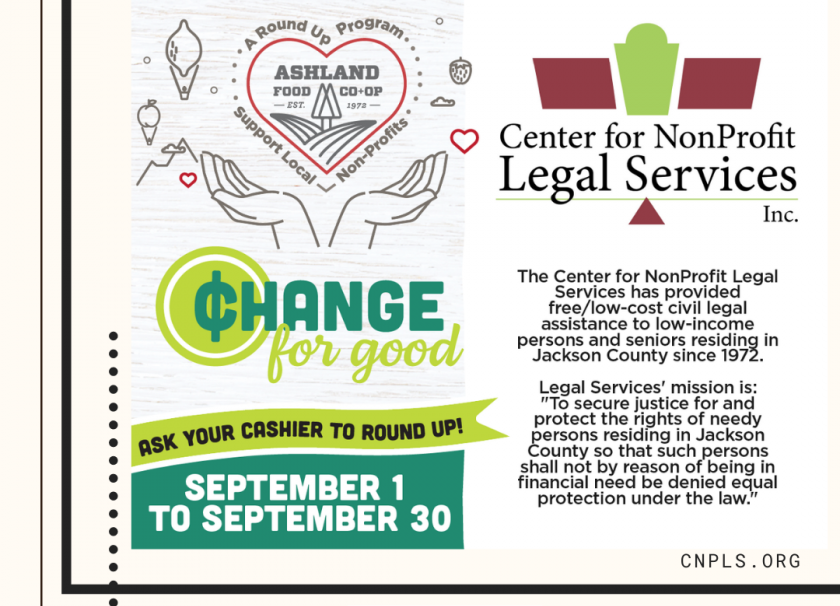
September Change for Good Partner: Center for NonProfit Legal Services
September's Change for Good Partner is
Center for NonProfit Legal Services
The Center for NonProfit Legal Services has provided free/low-cost civil legal assistance to low-income persons and seniors residing in Jackson County since 1972.

August Change for Good Partner: Klamath-Siskiyou Wildlands Center
August's Change for Good Partner is
Klamath-Siskiyou Wildlands Center
(KS Wild)
KS Wild's mission is to protect and restore wild nature in the Klamath-Siskiyou region of southwest Oregon and northwest California.


July Change for Good Partner: Southern Oregon Land Conservancy
July's Change for Good Partner is
Southern Oregon Land Conservancy
Protecting and enhancing precious land in the Rogue River region
to benefit our human and natural communities since 1978
Meet the 1st Street Beet
Welcome to the newly redesigned and reimagined newsletter from the Ashland Food Co-op: 1st Street Beet.
Think of this publication as a resource to know what’s going on in every level of the community: at the co-op, around town, in the region, and on Earth!
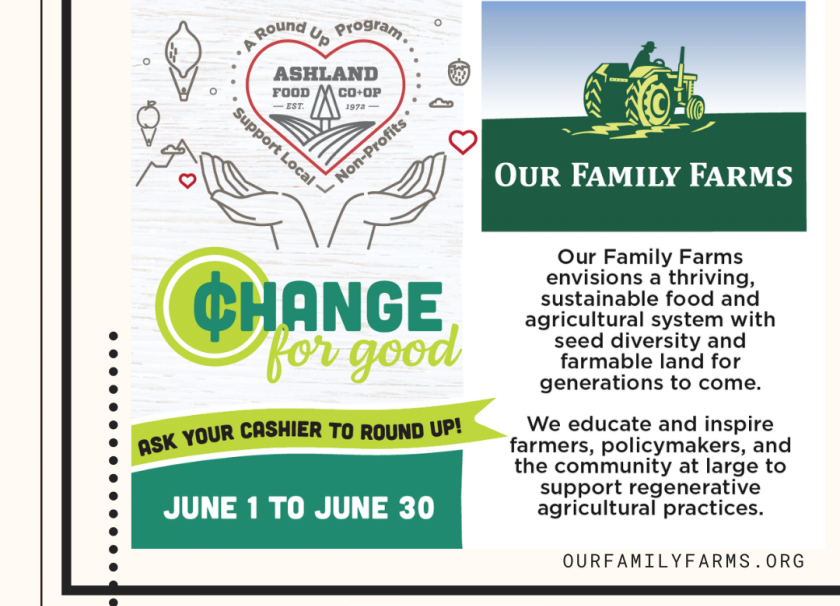
June Change for Good Recipient: Our Family Farms
June's Change for Good Recipient is
Our Family Farms, an Oregon 501(c)3 non profit organization, is hard at work educating and inspiring farmers, policy makers and the community at large to support regenerative agricultural practices.

Capiche Conversations: Interview with Tracy Kaiser, Marketing & Education Manager of Ashland Food Co-op
Our own marketing manager, Tracy Kaiser, was interviewed by Melissa L. Michaels for Capiche Conversations.
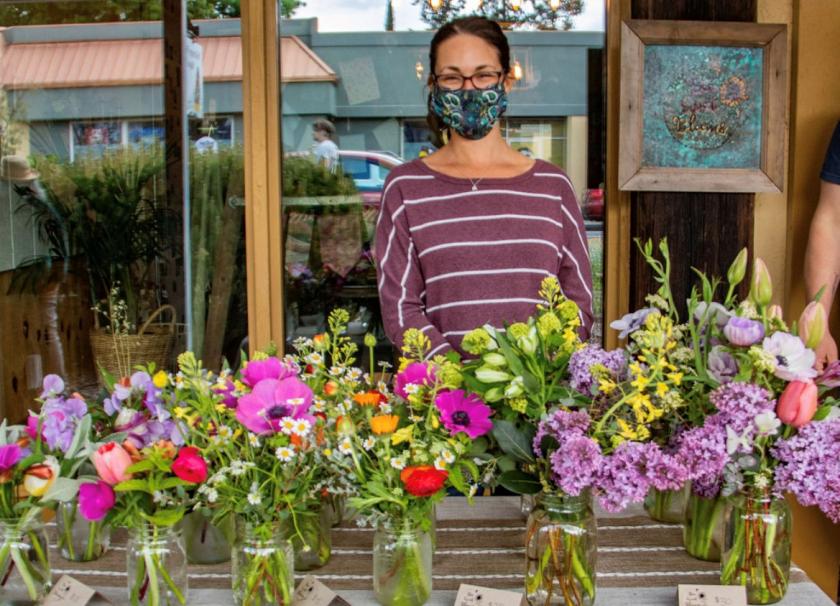
May Day Community Block Party
Photography by Chelsea Whitney Art
On May 1st, several Southern Oregon businesses came together for a block party to provide a space to gather as a community after a rough spell due to the pandemic and fires. The May Day Block Party was hosted on Main St in Phoenix, where the scent of food trucks mingled with artisan goods such as local cheeses, locally farmed flowers, and even fresh-baked pastries.
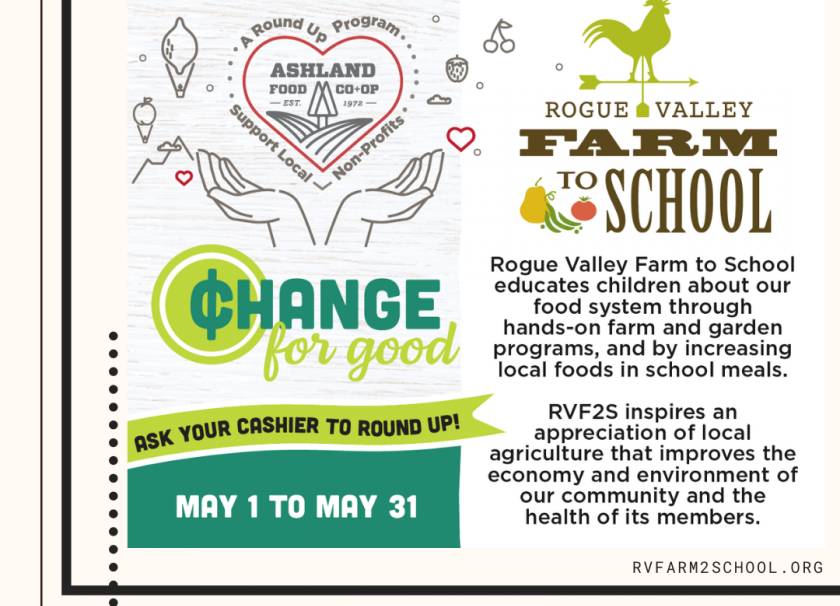
May Change for Good Recipient: Rogue Valley Farm to School
May's Change for Good Recipient is
Rogue Valley Farm to School educates children about our food system through hands-on farm and garden programs, and by increasing local foods in school meals.

April Change for Good Recipient: Pollinator Project Rogue Valley
April's Change for Good Recipient is
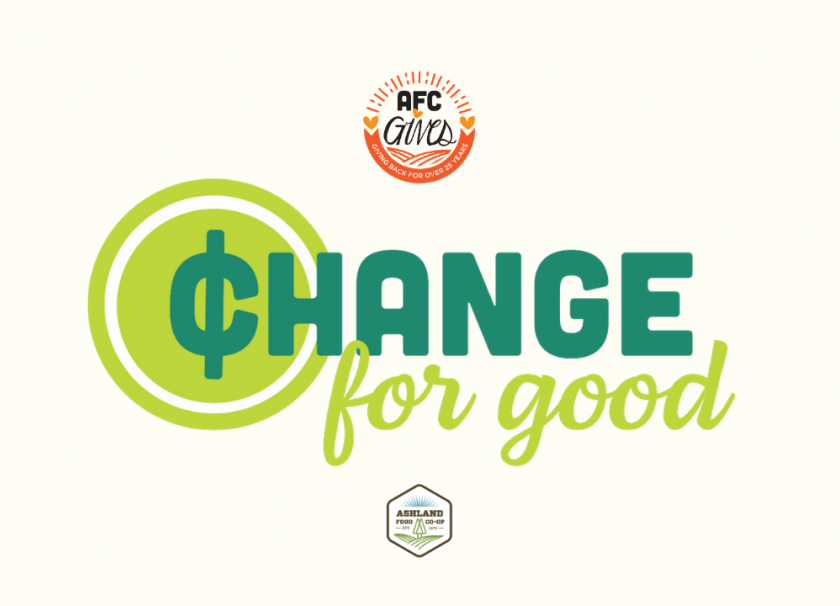
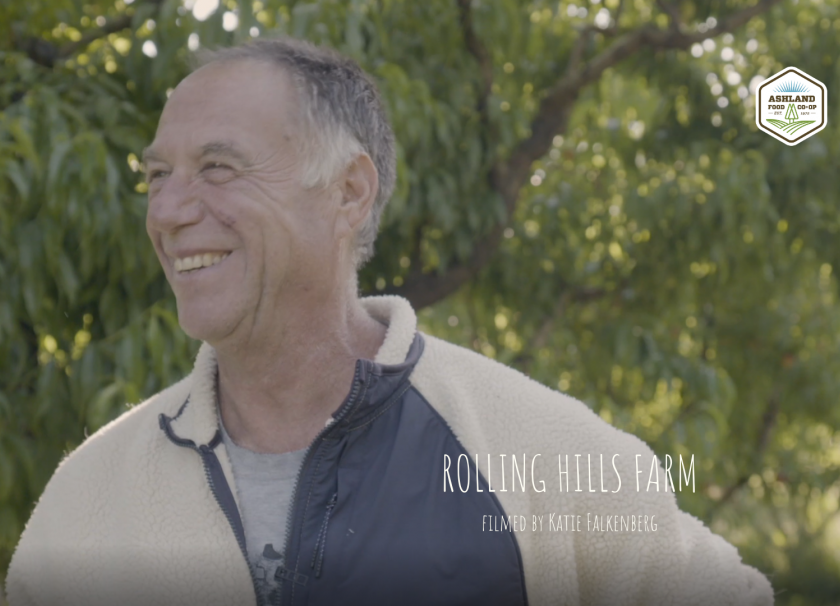
A Visit with Rolling Hills
Visit Rolling Hills Farm and learn more about owner Dave Belzberg, who the Ashland Food Co-op is so honored to partner with for more than thirty five years.

